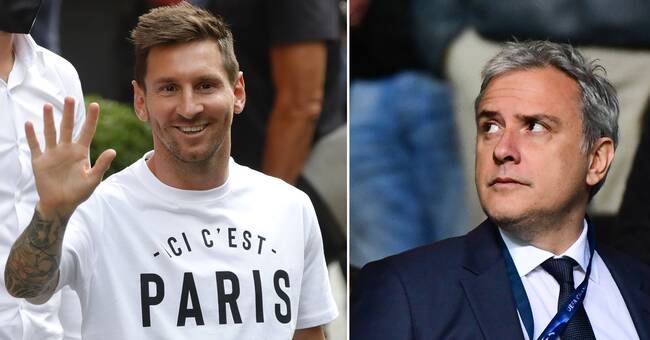This weekend, PSG's five new star players were presented at Parc De Princes in front of starving supporters, who for the first time saw the stadium's lights since March 2020.
While many football clubs are on their knees due to the corona, the French big club has surpassed itself in this summer's transfer.
The feather in his cap is of course the latest Ballon d'Or winner Lionel Messi, who was forced to leave FC Barcelona in tears as recently as a week ago, but now smiled and waved to the roaring crowd.
When he stepped out on the field, it was as if the other world players Gianluigi Donnarumma, Achraf Hakimi, Giorginio Wijnaldum and Sergio Ramos faded by his side.
That says something about the weight of his arrival in the French capital.
Questions about money and power
And of course the Parisians have every reason to celebrate.
But behind the obvious Messi hysteria are also big questions about money, power and a small emirate in the Persian Gulf.
The club's owner since 2011 is the company Qatar Sport Investments, QSI, which in turn is owned by the country's emir.
In the long run, this means that PSG is owned by the state of Qatar.
Since QSI bought PSG, Qatar has pumped huge amounts of money into the club and PSG has lined up star signings over the past decade for breathtaking transfer fees and offered players hugely lucrative contracts.
Zlatan Ibrahimovic, Thiago Silva, Javier Pastore, David Beckham and Edinson Cavani are examples only in the years 2012 and 2013. And in recent years: Angel Di Maria, Neymar and Kylian Mbappé - just to name a few.
- In the beginning, many PSG supporters were against Qatar.
The general opinion was that PSG had lost, or rather sold, their identity.
The feeling was that the football club was not "real" PSG anymore, says José Barroso, French sports journalist at L'equipe, to SVT Sport.
"The attitude has become more positive"
He has been a sports journalist for over 20 years and closely followed both PSG and the development of world football.
When the Qatar deal was completed in 2011, there was a great deal of debate among supporters in Paris.
But since then, public opinion has fluctuated, José Barroso experiences.
- People understand that for Qatar it is about marketing, geopolitics and soft power.
But when they have seen the effect it has had on French football, the attitude has become more positive.
We have had players in the French league that we could never have even dreamed of before.
But there is still a crowd of supporters who think PSG has lost its identity, that "old PSG" was better.
Qatar's influence in PSG and football in general is anything but unproblematic.
The emirate is not a functioning democracy and has repeatedly been accused of violating human rights, but may still host the 2022 World Cup and was a major sponsor of the European Championships this summer.
In January this year, The Guardian reported that 6,500 migrant workers had died in Qatar during construction ahead of the World Cup, and guest workers testified to feeling completely lawless as they were deprived of their passports, forced to work inhumanly long passports and lacked union representatives.
They are exposed daily to major and, in the worst case, fatal security risks.
There are other reasons for PSG's super signings
Several of the players have gone as bosses, which has made the transfers happy in terms of financial compensation to former clubs.
Another reason is that the salary cap that was planned to be introduced in France as part of UEFA's Financial Fair Play rules, which would mean that player salaries may not exceed 70 percent of a club's total turnover, has been postponed for two seasons due to corona.
Do you think Messi is aware, or thinks, that he is somewhere a poster name for Qatar?
- We may think that football players hover among clouds, but they are also thinking people who read the news.
He probably knows that his name will be associated with Qatar, but I do not know what his political or social views are.
I have not been able to ask him yet, says José Barroso.

